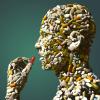Everything I've read generally say's that high D levels help prevent prostate cancer.
That's generally true in vitro, from what I've seen, but the data in humans is a lot muddier. There are a bunch of papers that find no relationship. I tend to discount anything that's based on a Food Frequency Questionaire, but this Finnish paper really caught my eye because they had stored sera from all cases and controls, and used a consistent methodology to measure the 25-OH-D3 level. That makes me weight it higher than most papers.
Int J Cancer. 2004 Jan 1;108(1):104-8.
Both high and low levels of blood vitamin D are associated with a higher prostate cancer risk: a longitudinal, nested case-control study in the Nordic countries.
Tuohimaa P, Tenkanen L, Ahonen M, Lumme S, Jellum E, Hallmans G, Stattin P, Harvei S, Hakulinen T, Luostarinen T, Dillner J, Lehtinen M, Hakama M.
Medical School, University of Tampere, Tampere, Finland. Pentti.Tuohimaa@uta.fi
Vitamin D inhibits the development and growth of prostate cancer cells. Epidemiologic results on serum vitamin D levels and prostate cancer risk have, however, been inconsistent. We conducted a longitudinal nested case-control study on Nordic men (Norway, Finland and Sweden) using serum banks of 200,000 samples. We studied serum 25(OH)-vitamin D levels of 622 prostate cancer cases and 1,451 matched controls and found that both low (</=19 nmol/l) and high (>/=80 nmol/l) 25(OH)-vitamin D serum concentrations are associated with higher prostate cancer risk. The normal average serum concentration of 25(OH)-vitamin D (40-60 nmol/l) comprises the lowest risk of prostate cancer. The U-shaped risk of prostate cancer might be due to similar 1,25-dihydroxyvitamin D(3) availability within the prostate: low vitamin D serum concentration apparently leads to a low tissue concentration and to weakened mitotic control of target cells, whereas a high vitamin D level might lead to vitamin D resistance through increased inactivation by enhanced expression of 24-hydroxylase. It is recommended that vitamin D deficiency be supplemented, but too high vitamin D serum level might also enhance cancer development.
PMID: 14618623
There was another paper that was a lot more recent, which I think came out of the US, and also found a problem with higher D levels. Foolishly, I've mislaid it. I'm beginning to wonder if I misinterpreted a recent paper that showed an OR of 1.22 for the highest concentration, though it wasn't significant. Did I miss the lack of significance? Damn, I discounted the Scandinavian study as an artifact of Vitamin A exposure or lattitude the first time I ran across it, but then I saw something confirmatory that really set me off... and now I can't find it. In looking for it, I ran across yet another case control study that says deficiency is bad, but other than that, no relationship.
Well, I think it's safe to say that deficiency is bad. That's been repeatedly confirmed. It doesn't look like high D is particularly great, the question is, is it bad? I'll retract that idea for now, and see if I can sort it out. If anyone can shed light on it, please do.









































